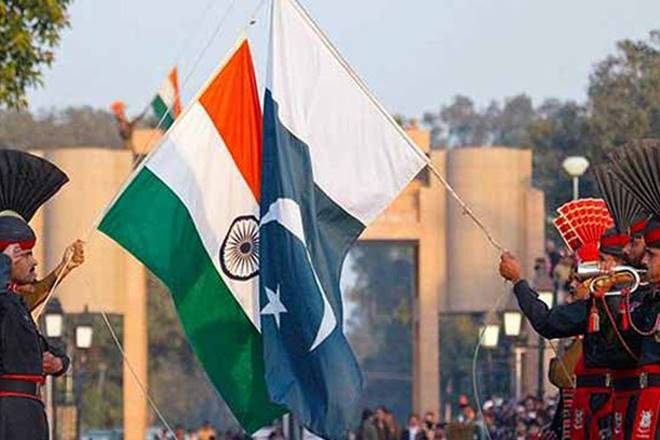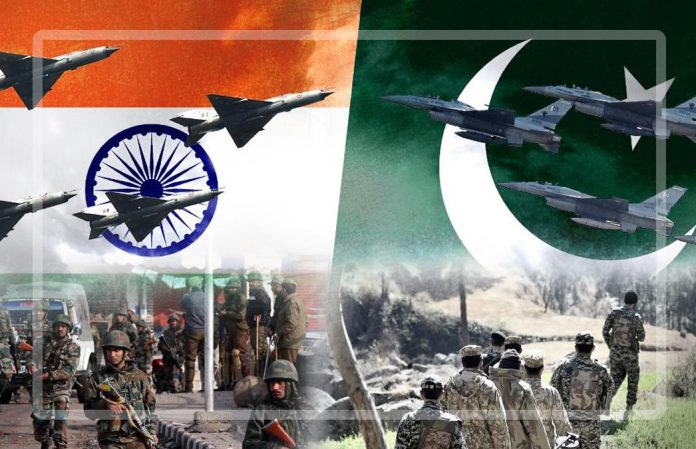Following the lingering crisis between India and Pakistan which is on the brink of degenerating to a major confrontation, the worldwide head of Ahmadiyya Community Hadhrat Mirza Masroor Ahmad (may Almighty Allah be his Helper) has appealed to world leaders to rise up to the occasion to prevent what could lead to World War III.
Hazrat Masroor was wary of the nuclear and sophisticated weapons in possession of these two warring countries which could trigger a major global crisis, hence the need for the so-called ‘”super powers” to intervene in the differences and ensure peaceful resolution between them rather than capitalizing on the crisis for selfish interest.
Already, the supreme leader has directed all members of the community not to relent in fervent prayers for amicable peaceful co-existence between India and Pakistan. The birth of the community could be traced to Qadian India. There were thousands of its members in the two countries.
The leader was known as a promoter of world peace. He had made several visits and addresses to world leaders including the United Kingdom and the United States of America, where he discusses ways of ensuring a peaceful atmosphere globally.
Tensions resumed at the two Asian countries recently when India bombed targets inside Pakistan following a deadly Kashmir attack.
The genesis of the crisis
Even before India and Pakistan won their independence from Britain in August 1947, Kashmir was hotly contested.
Under the partition plan provided by the Indian Independence Act, Kashmir was free to accede to India or Pakistan.
The Maharaja (local ruler), Hari Singh, chose India and a two-year war erupted in 1947.
A new war followed in 1965, while in 1999 India fought a brief but bitter conflict with Pakistani-backed forces.
By that time, India and Pakistan had both declared themselves to be nuclear powers.
Reasons for unrest
Many people in the territory do not want it to be governed by India, preferring instead either independence or union with Pakistan. The population of the Indian-administered state of Jammu and Kashmir is more than 60% Muslim, making it the only state within India where Muslims are in the majority.
High unemployment and complaints of human rights abuses by security forces battling street protesters and fighting insurgents have aggravated the problem.
The violent insurgency in the state has ebbed and flowed since 1989, but the region witnessed a fresh wave of violence after the death of 22-year-old militant leader Burhan Wani in July 2016. He died in a battle with security forces, sparking massive protests across the valley.
Wani – whose social media videos were popular among young people – is largely credited with reviving and legitimizing the image of militancy in the region.
Thousands attended Wani’s funeral which was held in his hometown of Tral, about 40km (25 miles) south of the city of Srinagar. Following the funeral, people clashed with troops and it set off a deadly cycle of violence for days. More than 30 civilians died, and others were injured in the clashes. Since then, violence has been on the rise in the state.
More than 500 people were killed in 2018 – including civilians, security forces and militants – the highest such toll in a decade.

Ceasefires
India and Pakistan did indeed agree to a ceasefire in 2003 after years of bloodshed along the de facto border (also known as the Line of Control).
Pakistan later promised to stop funding insurgents in the territory while India offered them an amnesty if they renounced militancy.
Then, in 2014, a new Indian government came to power promising a tough line on Pakistan but also showed interest in holding peace talks. Nawaz Sharif, then prime minister of Pakistan, also attended Indian PM Narendra Modi’s swearing-in ceremony in Delhi.
But a year later, India blamed Pakistan-based groups for an attack on its airbase in Pathankot in the northern state of Punjab. Mr. Modi also canceled a scheduled visit to the Pakistani capital, Islamabad, for a regional summit in 2017. Since then, there hasn’t been any progress in talks between the neighbours.
Recent Events
The bloody summer of street protests in Indian-administered Kashmir in 2016 had already dimmed hopes for lasting peace in the region. Then, in June 2018, Mr. Modi’s Bharatiya Janata Party pulled out of a coalition government run by the People’s Democratic Party. The state has since been under direct rule from Delhi, which fuelled further anger.
Tensions have risen since a suicide car bombing by Pakistan-based armed group, Jaish-e-Muhammad(JeM), in Indian-administered Kashmir killed at least 42 Indian paramilitary forces on February 14.
But the risk of an all-out conflict rose dramatically last Tuesday when India launched air raids on what it said was a JeM training base.
On Wednesday morning, New Delhi and Islamabad were engaged in a battle of conflicting military claims.
At least four Pakistani civilians were killed late on Tuesday in the cross-border fire between the two nuclear-armed South Asian rivals.












